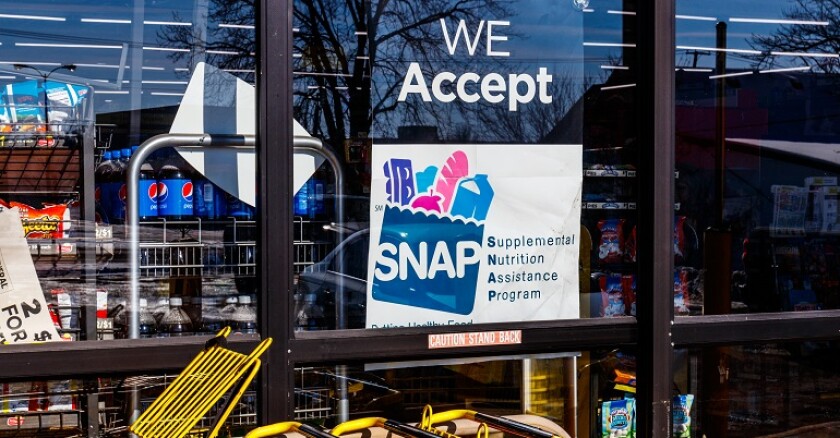As the former federal official overseeing the child-support program, I've spent my career working to strengthen it. We've made considerable progress in ensuring that more noncustodial parents fulfill their financial responsibilities to their children. However, state experience shows that this proposal would take us backward.
States already have the option to require parents to cooperate with the child-support program to receive SNAP benefits -- popularly known as food stamps -- but only six states do. This is largely because the policy is very expensive to implement but unlikely to boost child-support collections significantly. Seven of the 10 states that initially adopted the option rescinded it when it failed to be cost-effective, a 2014 study commissioned by the Utah legislature found.
Imposing the requirement nationally would cost an estimated $11 billion over the next decade to implement, the Congressional Budget Office estimates. To put this cost in perspective, it is about twice the annual budget of the child-support program.
One reason the proposed mandate wouldn't be cost-effective is that most single parents receiving SNAP benefits already participate in the child-support program; almost 70 percent of SNAP participants eligible for child support had an open case in the child-support program, the Utah study found. Other families received child support under a private court order or agreement. And research finds that more than 80 percent of fathers without a child-support order provide support to their children without program intervention.
Mandating child-support-program participation would force child-support agencies to create a new bureaucratic infrastructure to identify SNAP recipients and manage, track and monitor these cases. They also would have to create a process for determining when parents should be exempted from participation to protect the more than one in five single parents who experience domestic violence.
These administrative changes, the Utah study found, would require many more staff and expensive upgrades to computer systems. Program resources would be shifted away from existing cases, and the program's cost-effectiveness would decline. Most child-support computers are decades old and difficult to program, and in a few states are at risk of failure. The required enhancements would eat up state technology budgets without significantly addressing the program's technology crisis.
Such investments might be worth considering if they would likely generate substantial new child-support collections and improve children's economic security. But the Utah study estimated that fewer than 10 percent of families would receive increased child-support payments while up to 37 percent would face cuts in SNAP benefits.
Most noncustodial parents themselves have limited earnings and can pay only modest amounts of support. This may be particularly true for the minority of SNAP families who aren't already participating in the child-support program or receiving support through private arrangements.
The Census Bureau found that the main reasons some custodial parents don't pursue child-support are that the other parent provides what he or she can, can't afford to pay or is already providing support through an informal agreement.
Some families don't pursue child support for other reasons. Domestic-violence survivors may fear that it would put them or their children at risk; a staggering 43 percent of single mothers who do not receive any child-support are victims of abuse, according to a University of Texas study. Grandparents temporarily caring for children may fear that a parent pursued for child-support wouldn't allow the child to remain with them; the opioid-abuse crisis has forced many grandparents to become caregivers, but pursuing child support is unlikely to be productive in such cases. And family instability and health issues can make it hard for many families to navigate the bureaucratic process.
It's important for children to receive support from their parents, and agencies that administer SNAP should do more to help parents learn about and access child-support services. But the proposed mandate would waste billions, result in low collection rates, pose safety risks and leave some children worse off.









